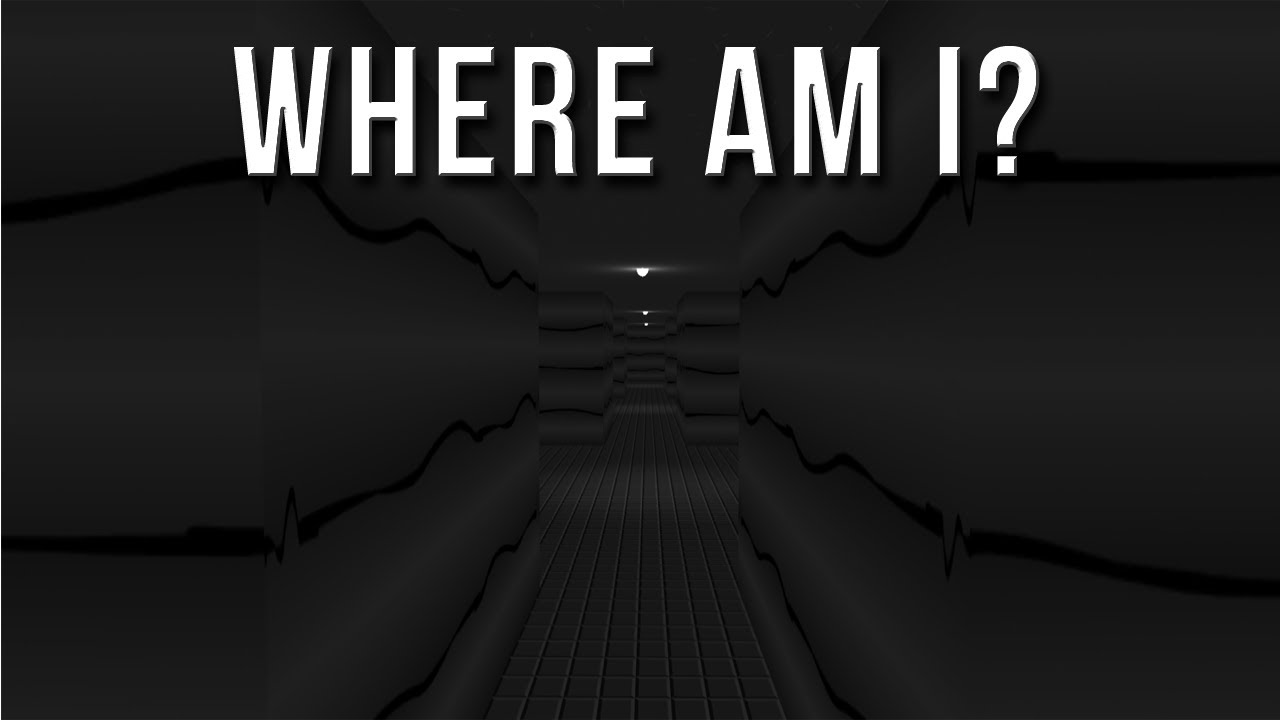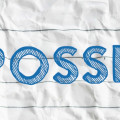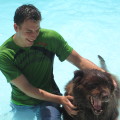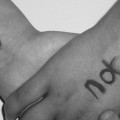
In the aftermath of a suicide loss, we look around us and question our surroundings. What once looked familiar, now looks completely unfamiliar. The world as we once knew it is gone, and we are forced to become acquainted with a new world. Leeann wrote a beautiful article reflecting on living in a world where you trust nothing. There is more to Leeann’s story (as with most of us) than just a tragic loss. Her ex-husband, father of her children, and best friend died from a drug overdose. While society doesn’t consider this a suicide, we know that you can’t be sure rather this was accidental or intentional. Regardless, someone is taken from this life too early as a result of their inner demons. Nobody wakes up and decides to become an addict; their pain leads them to it. Drug addiction and suicide…two of the most stigmatized topics in our society. It can be difficult to reach out for support when you feel like the odds aren’t in your favor. Isolation leads to mistrust. Mistrust leads to a loss of hope. Without hope, what do we have? I want to thank Leeann, for sharing her reflections with us. I for one was touched by her words, and know that you will be too.
HOW DO I LIVE IN A WORLD WITHOUT TRUST?
Have you ever wondered what it is like to maneuver through life when you don’t trust anything around you or maybe even within you? For me… I tend to throw my hands up in the air as I reiterate the same old message of internal dialog that derails my own belief system, “I should have known better” or “I can’t.” These simple words are my go-to default confirmation that life has disappointed me – yet again.
Sound familiar? The question that magnifies the response to my mental barriers of questioning the notion of trust – self-trust, trust in others, and trust in life. I have asked myself why I do not trust anything, as that has been my mode of operation for almost a decade. The answer resides in fear. The emotional component of our brain that is hardwired to accept fear over joy, insecurities over confidence, and anxiety over stability. We were created this way to deal with the exact fear that scares us most (AKA “fight-or-flight”). What if we had been taught “fight-flight-or-manage it?”
Then the question still beckons… “If I know I can handle what scares me, then why do I continue to be fearful?” What are we so afraid of? What am I so afraid of? I have looked the devil in the eyes and said, “NO.” I have paddled down the river of complete loss and remained hopeful. I have said goodbye to my best friend as he exited this life too early. I have held my father as he took his last breath. I have pummeled breast cancer with a ferocious fist of beastly force. I have overcome financial failure and horribly regretful mistakes. The question still remains, “Why can’t I trust anything and what am I so afraid of?”
Here’s what I know for sure in my very humble opinion… When an event happens that derails my trust, I lean in towards logic and I allow myself to obsess over it. I channel my fears over the tightrope of emotions and I reestablish my foundation with a firm grasp of control. A control that stabilizes my emotionally rocky state of not knowing what to expect and dreading the unknown. Let me reiterate that I have a doctorate level of experience in the sector of “freaking out.” If anyone knows how to freak out… it is me! But if anyone knows how to tackle life’s biggest issues, it is also me! Are you still with me? Can you see the misalignment?
Here’s where the misalignment comes into play and brands our conscience with crippling fear. We do not know how to embrace fear! At least I do not know how to embrace it, but rather drive it, avoid it, destroy it, or use logic to outsmart it. I do not know how to accept fear “as-is” and manage it. We were never taught to manage it at home or in school. We were taught to ignore it, avoid it, never discuss it, and pretend like it is not there, to begin with (also known as shame).
Let me establish this thought – our path is our fear. Our path is our pain. Our path is our journey and it is never stable.
Gliding through life with no fear and no pain will only navigate people towards a misunderstanding of their own purpose and self-worth. Avoiding the fear and the pain will mask over the joys of success. We perseverance through the challenging moments in life and then we hide it, we feel ashamed of it, and we pretend that it never happened. Does this sound like the American way? The evolution of disassociation has been the linear history since the Roman Empire. Seeking perfection enables the toxic association of bias, prejudice, and complete disconnection. There is no “right family,” “right neighborhood,” “right job,” “right political state,” “right race or gender,” or right anything. We are all servant leaders for each other, with each other, and making our journeys together.
What defines us is how we manage our days, embrace our fears, and honor our faith that life is not meant to be a stable glide through perfection. The journey is meant to be unstable by its very definition. The journey is not avoiding fear, it is accepting it “as-is,” as ours, and our journey will always be together.
This article originally appeared on Leeann’s blog www.perfectlysignificant.com. It has been reposted with her permission.




Very well said. Thanks for sharing.
Very Well Written! Beautiful Way to look at Life! Thank you!! Pat P.
Amen! and Thank you!
Thank you for sharing this. I lost my sister a year and a half ago.
When reading posts and articles I find myself reading from my perspective and also from my sisters perspective, as if there’s some correlation to how she may have felt prior to her death.
Fear wasn’t a big part of me prior to my sister’s suicide. But, losing someone you love and trusted most in your life can put fear and distrust right down the center of it all. Another hurdle to surviving suicide loss.
Thank you again.
Fear – fear is something I’m intimately familiar with. Fear has been my companion for over 45+ yrs. It is what it is. Fear is part of my journey and it has many faces, many definitions. I’m new at this, so forgive me if I go off in a million directions.
It’s been just over three months since my husband took his life. As a matter of fact he died due to an overdose. As mentioned in the previous post, how can one decifer if “it” was intentional or not? According to the toxicology report, cause of death was deemed suicide. As a result of examining doctor’s reports, speaking with his doctor’s and the amount of cocaine, Significant Amount of diazepam and sleeping pills found in Michael’s system all pointed to suicide. This finding validated what our 20 yr old son and I believed was the case. I found Michael sitting crossed legged with empty bottles of sleeping pills next to him. He had his face down with his hands laid out like an angel. I lived with my husband for 18 yrs; he helped raise my son as his own. We saw Michael during his bad days, but were so blessed to have seen him, felt him during his many good days. In addition to years of addiction (with many years not active), my husband was bipolar and manic depressive and also had a neurological condition where he was getting very little spinal fluid to his brain as a result of many concussions and hard living. What angers me is that not only society and the medical community has put such a negative stigma and in most cases not recognize mental illness as a disease such as cancer, diabetes etc. – that it can kill. I too as a survivor am trying to find the answers, put the pieces of this puzzle together. It has finally been scientifically proven there are neurons in the brain that are “scrambled” in alcoholics, there is scientific proof that those who suffer concussions/severe trauma to the head could have CTE. But even with techonlogical advances, mental illness is still a mystery. Someone who is a recovering addict and who suffers from anxiety and depression and has fibromyalgia, I can put the pieces together. When will acceptance, action and funding be put towards linking neurological, mental illness and addiction as a disease that can take a person’s life? I am my husband’s soulmate. I’m his ying to his yang. I was the person who talked about suicide, not him. I can enter Michael’s soul, and feel his pain. If I was honest with myself I could feel “Why” he chose to end his life. I’m not sure if I will ever get there. But I know fear was his companion as well. I’m on an emotional rollercoaster everyday. My heart is broken, my soul is wounded, my spirit is empty. All I want is my Michael back. Thank you for allowing me to vent. I’m grateful I have found this site. Fear – it is what it is and without it, who knows if i would be here today writing this.